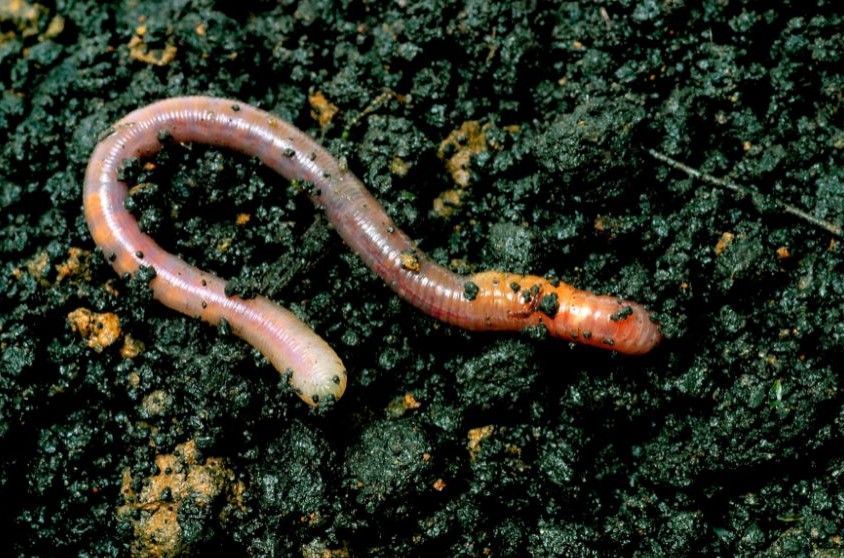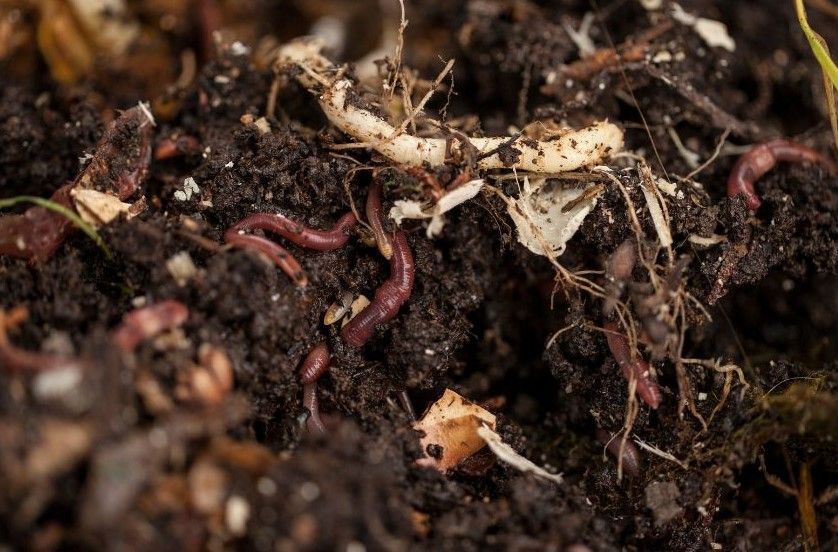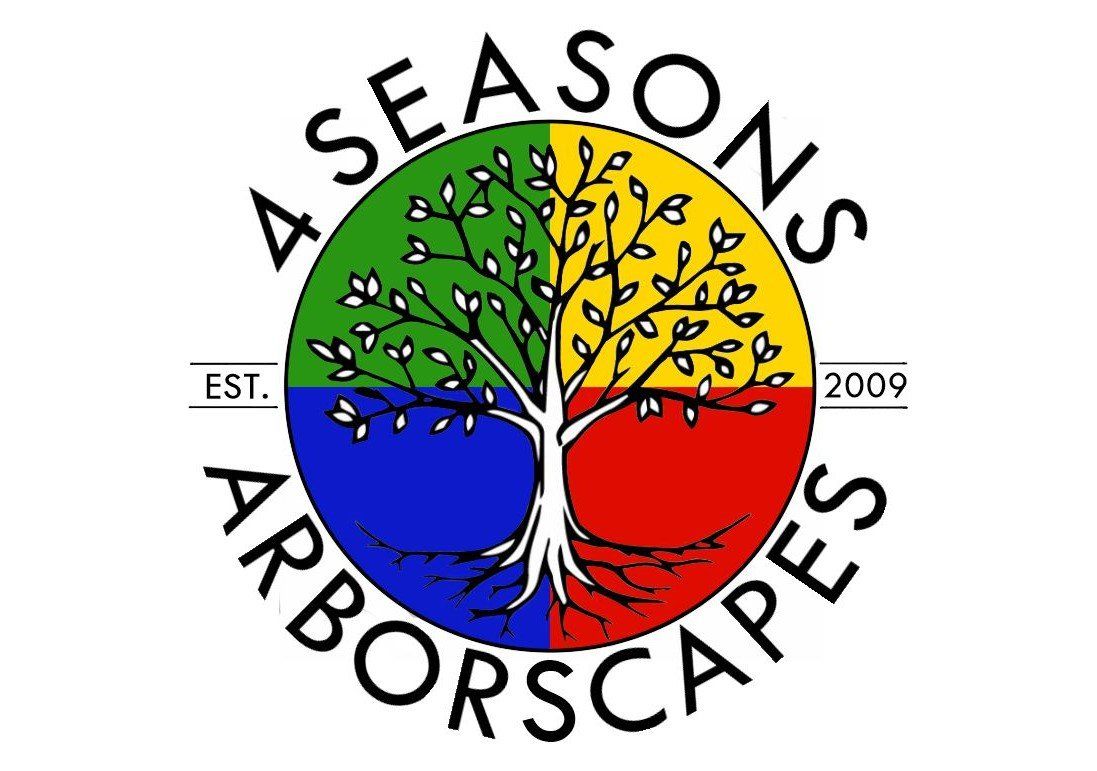Earthworms and the Ecosystem
Years ago, earthworms were not considered very important for agriculture. Now we know that earthworms play a vital part in the ecosystem. Charles Darwin sporadically observed earthworms for more than 40 years, recognizing how important their role was in the ecosystem. He gathered that earthworm conservation was much more important than other animals, considering how they contribute to the soil’s biological, physical, and chemical properties.
“It may be doubted whether there are many other animals which have played so important a part in the history of the world, as have these lowly organized creatures.”
- Charles Darwin
Earthworms are an important part of the soil ecosystem. They live mainly in the soil and have some significant advantages by breaking down organic matter and fertilizing it in the process. They constantly need to eat and excrete, thereby egesting a by-product called ‘worm cast.’ These worm castings contain an incredible amount of nutrients, which provide a more hospitable habitat for both plants and other organisms that inhabit the soil.

There are three types of earthworms:
Litter dwellers: Litter dwellers live in crop- or forest-litter rather than building burrows. They feed on decaying plant matter, leaf litter, or manure and are great for composting. They are not common in most agricultural soils.
Topsoil dwellers: Topsoil dwellers live in the upper two to three inches of the soil. They survive primarily by consuming partially decomposed organic matter that is already incorporated in the soil. They eat their way through the soil, creating horizontal burrows that they fill with their excrement. These species ingest large amounts of soil that they mix with digested crop residue in their guts. They usually only make an appearance in heavy rain.
Subsoil dwellers: Subsoil dwellers are the slowest-moving of the worm types and live in permanent vertical burrows that can be five to six feet deep. Their burrows are quite extensive and can be as big as one inch in diameter. They need to consume surface crop residue to survive. The subsoil dwellers are often used for fishing bait and are known as nightcrawlers.
Interesting Fact: There are 182 species of worm in North America
Benefits of worms
The burrowing and feeding activities of worms have numerous beneficial effects on overall soil quality for crop production. Earthworms act as a soil conditioner.
- Water infiltration. Some earthworms create vertical burrows, which provide excess water a point of entry for quick filtration through the soil.
- Soil aeration and compaction. Earthworms increase soil porosity by creating permanent burrows, which improves aggregation and reduces soil compaction. This facilitates the exchange of gases between the plant roots and the atmosphere.
- Soil organic matter. Earthworm populations can consume 2 tons of dry matter per acre per year, partly digesting and mixing it in with the soil. This helps improve the soil structure.
- Plant-available nutrients. Earthworm castings have higher available nitrogen, phosphorus, potassium, and calcium contents than surrounding soil. Allowing the plants to absorb more nutrients from the soil for healthier growth.
- Soil pH. Soil that has passed through the earthworm’s gut has a neutral pH, a condition most plants thrive in.
- Beneficial microbes. Earthworms excrete material that has high concentrations of beneficial microbes, that help to decompose crop residue.
- Nematode control. Earthworms eat crop-eating pests like nematodes.
- Fragmentation. Earthworms contribute to decomposition by fragmenting, incorporating, and mixing residues into the soil.
- Microbial production. Multi-scale cavities created through earthworm movements help improve soil porosity and aeration, supporting microbial growth.
- Performing their role in nitrogen fixation. Nitrogen-fixing bacteria are found in the gut of the earthworm and in the earthworm casts. Nitrogen is used by plants to grow.
- Phosphorous dynamics. Worm castings contain four times more phosphorus, an important macronutrient, than surrounding soil
- Secretion of plant growth hormones. Earthworms release growth-promoting hormones and enzymes that can stimulate root growth and enhance plant development.
How to Help Earthworms
The population of earthworms in the soil is threatened by soil conditions and environmental factors. Agricultural practices like heavy tillage operations, overuse of chemical fertilizers, and proliferation of agrichemicals also contribute to the reduction of earthworms in the soil.
Earthworms do not like soil that is too acidic, alkaline, dry, wet, hot, or cold. When you see earthworms in your garden, it is a good indicator of suitable soil conditions for plant growth. Here are ways to help earthworms at home:
- Regularly lime of acidic soils. Earthworms do not like acidic soil. Amending acidic soil with lime raises the surrounding pH levels and increases the calcium content, which is vital to worm survival.
- Increase organic matter. Earthworms feed on soil and decaying matter such as straw, leaf litter, and dead roots.
- Reduce the use of chemical fertilizers and agrichemicals. Highly acidic fertilizers and some agrichemicals will reduce worm populations.
- Monitor soil moisture. Moisture is needed for the survival of earthworms. Groundcover reduces moisture evaporation, and decaying organic matter holds moisture in the soil.
- Improve soil drainage. Worms need oxygen to survive, therefore reasonably aerated soil is essential.
- Reduce soil compaction. It is very difficult for earthworms to move through heavily compacted soil. You can gently till your soil to prove some “wiggle room” for worms.
- Reduce mechanical soil cultivation. Mechanical plowing of soil slashes earthworm numbers.

References:
4 Reasons Why Earthworms Are Important For The Ecosystem | Focusing on Wildlife
Earthworms’ role in the ecosystem — Science Learning Hub
Why Earthworms are Important and how to Boost them (emnz.com)
Different Types of Earthworms with Pictures & Facts | Trees.com
7 Reasons to Love Earthworms—and How to Attract More to Your Garden - Bob Vila
The Role of Earthworms in Soil Fertility and Plant Growth (thewormpeople.com)
Check out the latest...








